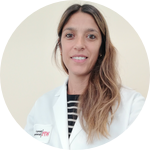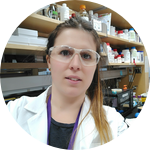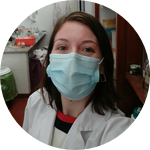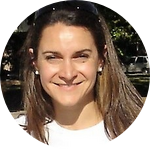About This Project
Tuberculosis (TB) infects more than 10 million people per year and kills 1.4 million. One of the main causes of death is treatment failure due to the existence of multidrug resistant strains of Mycobacterium tuberculosis, the pathogen responsible for TB. The present project aims to seek for antimicrobial peptides, a class of molecules produced by a variety of organisms, with activity against M. tuberculosis, to further use them in TB therapy.
Ask the Scientists
Join The DiscussionWhat is the context of this research?
Widespread multidrug resistant tuberculosis (MDR)-TB is a major health concern worldwide. The occurrence of COVID-19 is thought to worsen the problem even more, as many TB patients dropped out the treatment, prompting the emergence of new MDR-TB strains. MDR-TB is hard to cure, as bacteria responsible for the disease are resistant to most of the drugs used in TB treatment, leading to poor outcomes, treatment failure and, in many cases, to patient death. MDR-TB is more prevalent in low-income countries, which complicates the scene even more, as many people have no access to primary care.
What is the significance of this project?
Even though MDR-TB patients can be treated with a cocktail of alternative drugs, most of them are very toxic, produce severe side effects, and are not as effective as the first-line ones. Then, exploring new natural compounds that can be used as drugs for TB treatment is a first step towards a better MDR-TB therapy. Finding new drugs will improve the lives of people that suffer MDR-TB and will help to save lives of those that have no alternative of treatment. The open publication of the results obtained here will make the problem more visible for the governments and organizations, and will give the scientific community and companies the opportunity to study these compounds and work on their production to make them available to the community.
What are the goals of the project?
The goal of this project is to obtain a collection of antimicrobial peptides with antitubercular activity that can be used in MDR-TB treatment. We will explore hundreds of bacteria and select those that produce compounds that are toxic for M. tuberculosis. Once we detect those bacteria, we will proceed to purify and identify the compounds responsible for M. tuberculosis death. The candidate compounds will be characterized and their activity against M. tuberculosis will be measured with standard protocols. Our long-term goal is to incorporate the new compounds to MDR-TB therapy and improve the treatment outcomes.
Budget
Our lab has the appropriate equipment to carry out this project. The funding will be used to buy the specific items necessary to start with the screening of antimicrobial peptides with antitubercular activity. We will mostly buy plastic material and reagents required to do the first part of this project.
Endorsed by
 Project Timeline
Project Timeline
The funding will be used to set up the first part of this project, which consists on a screening using hundreds of bacteria that we have in our lab and others that we will collect from different environments, and select those with the ability to inhibit growth of Mycobacterium tuberculosis. We speculate this will take around 3 months. After that, the compounds produced by those bacteria will be analyzed, and we will work in their isolation, sequencing and proper characterization.
Mar 30, 2022
Project Launched
Apr 04, 2022
Testing mycobacterial growth inhibition by different bacteria
Jul 04, 2022
Isolation and purification of candidate antimicrobial peptides or other compounds
Aug 30, 2022
identification and characterization of selected antimicrobial compounds
Oct 28, 2022
Evaluation and quantification of antitubercular activity of the purified compounds
Meet the Team
Affiliates
Affiliates
Affiliates
Team Bio
We are a small but very hard-worker and motivated group. Dr. Del Papa will be critical for isolating soil bacteria that will be further screened for the presence of antitubercular compounds. Dr. Martini has experience on working with mycobacteria and will perform the screening of compounds produced by the isolated bacteria evaluating their ability to kill M. tuberculosis . Vacca will help in the screening, identification and characterization of the candidate compounds.
Maria Carla Martini
After I got my B.S. in Biotechnology and Molecular Biology at the National University of La Plata, Argentina, I joined the Institute of Biotechnology and Molecular Biology, were I earned my Ph.D. studying the mobile genetic elements in bacteria from polluted soils (References: 1,2,3,4). After that, I worked as a postdoc at the Worcester Polytechnic Institute in Massachusetts, USA, were I spent the last 5 years studying different aspects of the physiology of Mycobacterium tuberculosis, the causative agent of tuberculosis (Publications: 5, 6, 7).
I am currently setting up my group and starting a new research line exploring new compounds with antitubercular activity. I am working at the Institute of Biotechnology and Molecular Biology in the National University of La Plata, Argentina, where I was recently awarded with the position of Research Assistant by the CONICET (National Scientific and Technical Research Council of Argentina). I am fascinated in understanding how mycobacteria evolve to become resistant to antibiotics and very motivated to find new compounds that can be used in tuberculosis treatment and help to improve the lives of people suffering with the disease and prevent death.
Carolina Vacca
I got my BS in Biotechnology and Molecular Biology at the National University of La Plata. I am currently a PhD student at the Institute of Biotechnology and Molecular Biology. My studies are focused in understanding how rhizobia, a group of nitrogen fixing bacteria, respond to different stresses while living in soil.
María Florencia Del Papa
I am researcher at the Institute of Biotechnology and Molecular Biology, Argentina. During my PhD, I focused on studying rhizobia, a group of soil bacteria necessary for the biological nitrogen fixation in plants. Since early stages of my career, I have been particularly motivated by understanding the mechanisms involved in tolerance to acidic conditions and other stresses that bacteria encounter in the soil. After I earned my PhD, I moved to California, USA, where I worked as a research assistant at The Scripps Research Institute. I learned how Enterococcus faecalis, a human pathogen, uses the so-called Two Component Systems (TCS) to regulate host infection. I studied the mechanisms by which this bacterium is able to cross the barrier from a commensal to major hospital-acquired pathogen. After that, I came back to Argentina and started my own research, which is focused on studying the role of different TCS in Sinorhizobium meliloti in response to different stresses. In addition, I worked in the isolation and characterization of bacteria from polluted environments and studied their mobile genomes.
I have also collaborated with research groups from other countries, conducting research stays and postdoctoral training (Denmark, Germany and the United States).
Since 2008 have been Professor at the Department of Biological Science, FCE, La Plata National University.
Project Backers
- 7Backers
- 5%Funded
- $200Total Donations
- $28.57Average Donation



